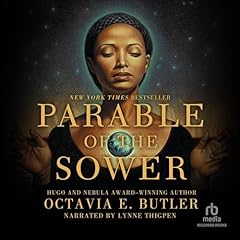
Think like a Commoner
A Short Introduction to the Life of the Commons
No se pudo agregar al carrito
Add to Cart failed.
Error al Agregar a Lista de Deseos.
Error al eliminar de la lista de deseos.
Error al añadir a tu biblioteca
Error al seguir el podcast
Error al dejar de seguir el podcast
Prueba gratis de 30 días de Audible Standard
Compra ahora por $17.58
-
Narrado por:
-
David Skulski
-
De:
-
David Bollier
The biggest “tragedy of the commons” is the misconception that commons are failures - relics from another era rendered unnecessary by the market and state. Think Like a Commoner dispels such prejudices by explaining the rich history and promising future of the commons - an ageless paradigm of cooperation and fairness that is re-making our world.
With graceful prose and dozens of fascinating stories, David Bollier describes the quiet revolution that is pioneering practical forms of self-governance and production controlled by people themselves. Think Like a Commoner explains how the commons:
- Is an exploding field of DIY innovation ranging from Wikipedia and seed-sharing to community forests, collaborative consumption, and beyond
- Challenges the standard narrative of market economics by explaining how cooperation generates significant value and human fulfillment
- Provides a framework of law and social action that can help us move beyond the pathologies of neoliberal capitalism
We have a choice: Ignore the commons and suffer the ongoing private plunder of our common wealth, or Think Like a Commoner and learn how to rebuild our society and reclaim our shared inheritance. This accessible, comprehensive introduction to the commons will surprise and enlighten you, and provoke you to action.
David Bollier is an author, activist, blogger, and independent scholar. He is the author of six books on different aspects of the commons, including Green Governance, The Wealth of the Commons, and Viral Spiral, and is a frequent speaker at conferences, colleges and universities, and policy workshops.
©2014 David Bollier (P)2014 Post Hypnotic Press Inc.Los oyentes también disfrutaron:




















Excellent overview
Se ha producido un error. Vuelve a intentarlo dentro de unos minutos.
Content superb, recording could have been better
Se ha producido un error. Vuelve a intentarlo dentro de unos minutos.
The topic of the Commons goes broad and deep. This book is meant to be basic, yet perhaps requiring much setting aside of prior thoughts, if only temporarily, in order to give the ideas honest due. You may find yourself unlearning prior beliefs to make room for newer notions. Some of us have grown up in a culture that we accepted without giving its norms and mores much thought. Give yourself time. I suggest you do not automatically resist what is unfamiliar. As a nation we are all seeking answers. Could this be one such answer, or not? Could some of this be worthy, or none?
I recommend reading other Bollier books for more thought on thinking like a Commoner.
Personally I do not think every single thing said is something I can accept as necessary to believe in order to think like a Commoner. I plan to give it more thought. I am not willing to simply fling this understanding aside. Do we need something other than same old same old Capitalism or can it be tweaked. I for one do not want Socialism or Communism. As a nation we owe it to one another to be life long learners to get to the root of matters so we can heal our land and stop ravaging other people and their lands.
David Bollier, other authors, and practicing Commoners are on to something worth contemplative consideration. Don't just shove the content aside when it conflicts with all or any of your other thoughts. Do expect your other thoughts to either agree or disagree.
You may discover yourself at a crossroad...
DAVID BOLLIER BROADLY TOUCHES ON THIS TOPIC
Se ha producido un error. Vuelve a intentarlo dentro de unos minutos.
Uno de los mejores libros para comenzar en el tema
Se ha producido un error. Vuelve a intentarlo dentro de unos minutos.


